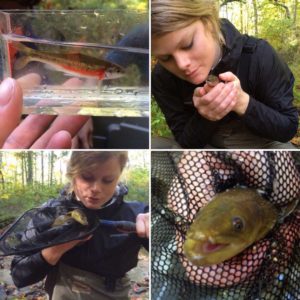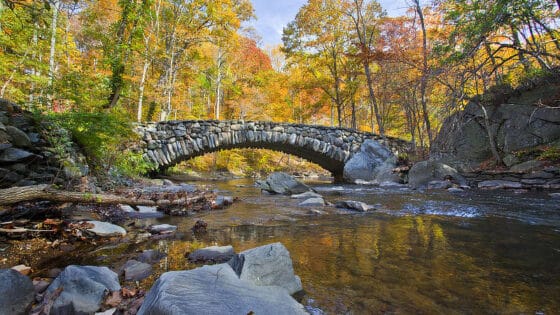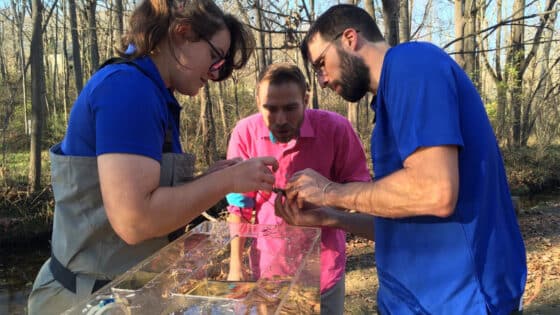
“I have always wanted to work in conservation in some capacity,” says Emily Scott, an intern in the Geomorphology Group. Scott’s background is unique for a Stroud Water Research Center intern. Unlike her peers, who are often students of environmental science, she majored in anthropology and religious studies.
“People, their cultural perspectives, and their motives are some of the greatest hurdles and contributing factors in the world of science.” With that in mind, Scott hopes to launch a career communicating the need to protect endangered species.
Growing up with horses and other animals on her family’s farm in Unionville, Pennsylvania, instilled an early interest in animals. “I have an unwavering reverence for their instinctual intelligence and integral role on this planet.”
Travel adventures deepened her interest, giving rise to career aspirations toward wildlife conservation.
She has visited 27 countries thus far and has witnessed firsthand the difference education about environmental challenges can make. “I’ve seen the juxtaposition between the informed population and the uninformed population.”
Since joining the Stroud Center in June, Scott has spent her days learning field techniques and how to identify and catalog macroinvertebrates, read temperature data loggers, and conduct GPS surveys. Her favorite part: the eels.
“I have now held multiple American Eels in my hands and fallen in love with their sleek intelligence. It’s become a bit of a joke as to how enthralled I am with them. Here we have this amazing endangered species in our backyards of Chester County, and yet most people don’t know they exist here. In the midst of their long spawning migration to the Sargasso Sea, they can actually climb waterfalls and navigate terrain — without arms. Now tell me that isn’t something special in the will to survive!”
When she’s not cuddling eels and identifying bugs, Scott enjoys skiing, hiking, zoology, reading, and more recently, after a visit to Scotland, falconry. She currently lives in Chester County and hopes to move west in the near future to work in the outdoor recreation industry while continuing to gain experience in environmental communications.



